Spring Speaker Series – Jewish Experiences in America
Series dedicated in memory of Norman H. Finkelstein, z”l
Join us online for a three-part series featuring three leading scholars discussing three very different aspects of the Jewish experience in America.
Jewish Name Changing in America with Kirsten Fermaglich
Wednesday, March 20, 2024 7:00 pm ET (online)
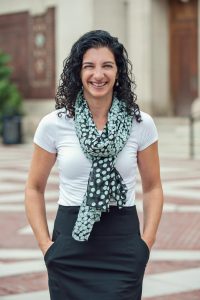
Our images of name changing are frequently clichés: movie stars who adopted new names or Ellis Island officials who changed immigrants’ names. Kirsten Fermaglich upends these cliches by examining previously unexplored name change petitions. In twentieth-century New York City, thousands of ordinary Jews legally changed their names to respond to institutionalized antisemitism. While name changing allowed Jewish families to achieve middle-class status, the practice also became a source of family pain and community stigma.
Kirsten Fermaglich is Professor of History and Jewish Studies at Michigan State University. Her most recent book, A Rosenberg by Any Other Name: A History of Jewish Name Changing in America (New York University Press, 2018) was awarded the Saul Viener Book Prize by the American Jewish Historical Society in June 2019. From January 2022 through June 2023, she served as a National Archives Distinguished Fellow, tasked with studying antisemitism in the United States federal government. Fermaglich is also the author of American Dreams and Nazi Nightmares: Early Holocaust Consciousness and Liberal America, 1957-1965 (Brandeis University Press, 2006) and the co-editor of the Norton Critical Edition of Betty Friedan, The Feminine Mystique (2013), with Lisa Fine. From 2016 through 2021, she was co-editor of the journal, American Jewish History, along with Daniel Soyer and Adam Mendelsohn. She currently serves on the board of the Association for Jewish Studies.
Becoming American Jews: The Evidence in Art and Architecture with Samuel Gruber
Wednesday, April 10, 2024 7:00 pm ET (online)
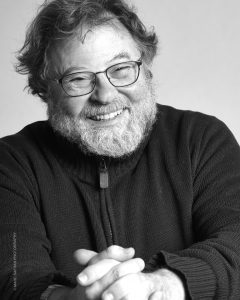
photo credit – Marc Safran
Whenever Jews emigrated to America they had to adapt to new circumstances and often create new identities. Often Jews anglicized names; or simplified dietary restrictions. In extreme cases some gave up the practice of Judaism altogether. Many early Jewish immigrants had married and merged into the Christian majority. For most immigrant Jews, however, especially after 1880, changes were considerable but not extreme. Jews tried to balance tradition, which often meant maintaining a status as the “other,” and adopting American appearance, customs, language, and beliefs, to become one of the “many.” This follows the American motto: E pluribus unum. Assimilation was the expected norm for all immigrants in the United States, but each group found its own way to becoming American. This talk tracks these changes through the art and architecture made by and for Jews. We’ll track how and when immigrants used new language, new symbols, new images, and new styles in art and architecture in order to express their identity as both Jews and Americans. Sometimes the art was two-faced, with one visual language used for the wider world and another within the Jewish community. Are there such examples at the Walnut Street Shul?
Samuel Gruber is an accomplished researcher, author, curator and consultant, and founder and managing director of Gruber Heritage Global (GHG) – a cultural resources consulting firm. He served for a decade as Research Director of the U.S. Commission for the Preservation of America’s Heritage Abroad, for which he planned and supervised more than a dozen major countrywide cultural heritage surveys. He was founding director of the Jewish Heritage Council of the World Monuments Fund (WMF) for which he planned and oversaw major documentation, planning and restoration projects in many countries. He is presently working on preservation projects in America and Europe. He has curated two online exhibitions for the College of Charleston: Life of the Synagogue (2015), and Synagogues of the South (2022). He curated the online Romaniote Memories for Queens College (2021), and the physical A Sacred Space: Synagogue Architecture and Identity, on view at the Jewish Theological Seminary in New York until March 7, 2024. Gruber is president of the not-for-profit international Survey of Jewish Monuments, for which he is presently a lead researcher on the international Holocaust Memorial Monument Database. Gruber received his B.A. in Medieval Studies from Princeton University and his Ph.D. in Architectural History from Columbia University. His many publications include American Synagogues: A Century of Architecture and Jewish Community (Rizzoli, 2003) and Synagogues (Metrobooks, NY, 1999). He has also co-authored Synagogues and Mass Graves Sites in Ukraine (2005); Survey of Historic Jewish Sites in the Czech Republic (1995), Survey of Historic Jewish Sites in Poland (1994; rev. 1995) and many scholarly and popular articles on medieval architecture, Jewish art and architecture, and historic preservation. Gruber is a Fellow of the American Academy in Rome. Besides his consulting work, he has taught part-time in Jewish Studies at Syracuse University since 1994.
Overcoming Antisemitism in America with Rabbi Charles Savenor
Wednesday, May 22, 2024 7:00 pm ET (online)
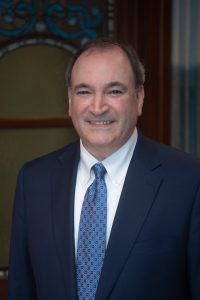
While the alarming increase in Antisemitism in the United States is cause for concern, Norman Finkelstein shows us that this is just the latest iteration of prejudice and hatred on these shores. This session will explore his final book, Saying No to Hate: Overcoming Antisemitism in America, to understand as much the current crisis as the Jewish community’s unending courage, perseverance, and hope. We will also have a chance to remember Norman Finkelstein, a natural storyteller with Chelsea roots.
Rabbi Charles E. Savenor is the Executive Director of Civic Spirit. Before joining the Civic Spirit team, Rabbi Savenor worked at Park Avenue Synagogue in New York as the Director of Congregational Education. He graduated from Brandeis University with a B.A., summa cum laude, and received rabbinic ordination from the Jewish Theological Seminary (JTS) with a concentration in Education. In addition to his Masters of Education from Columbia University Teachers College, he was awarded an honorary doctorate by JTS in 2022. He blogs on parenting, leadership, civic education, and Judaism in the 21st century. He is currently writing a book called What My Father Couldn’t Tell Me. Originally from Needham, MA, he lives in New York City with his wife and two sons, who are all Red Sox fans.
Program partners for May 22 program –
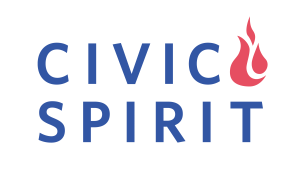
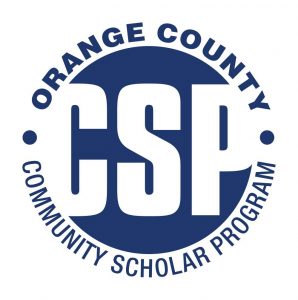
Learn more about Civic Spirit here
Learn more about CSP here
Event flyer – Spring Speaker Series 2024

